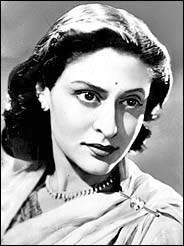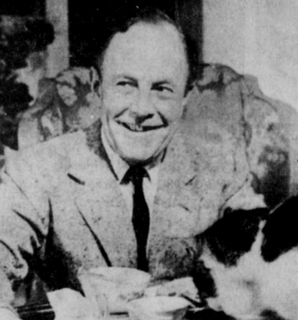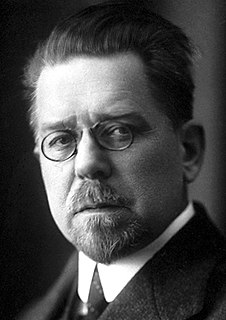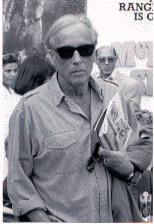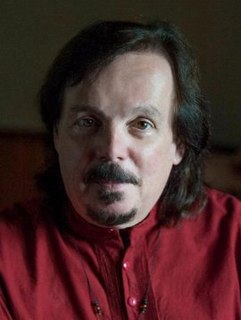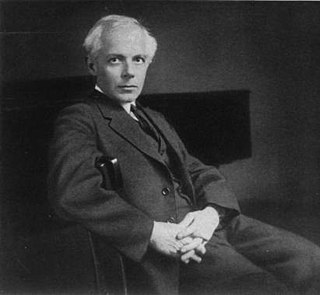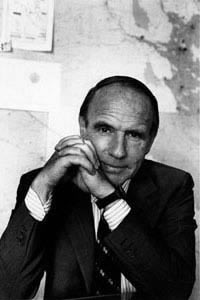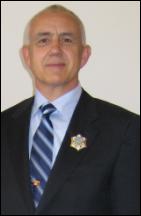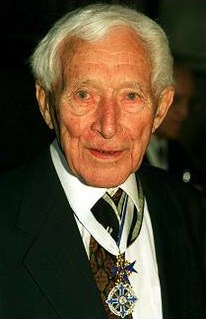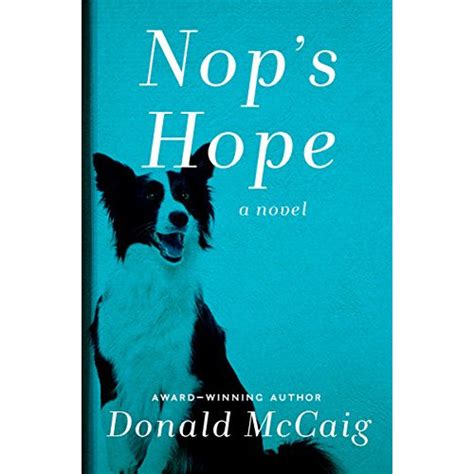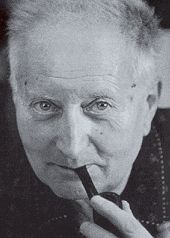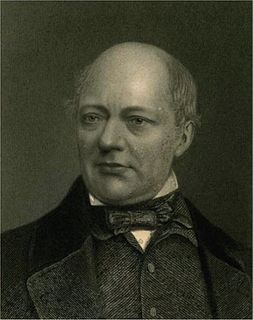Top 233 Peasant Quotes & Sayings - Page 4
Explore popular Peasant quotes.
Last updated on April 16, 2025.
Like any normal fifth grader, I preferred my villains to be evil and stay that way, to act like Dracula rather than Frankenstein's monster, who ruined everything by handing that peasant girl a flower. He sort of made up for it by drowning her a few minutes later, but, still, you couldn't look at him the same way again.
Every man feels that perception gives him an invincible belief of the existence of that which he perceives; and that this belief is not the effect of reasoning, but the immediate consequence of perception. When philosophers have wearied themselves and their readers with their speculations upon this subject, they can neither strengthen this belief, nor weaken it; nor can they shew how it is produced. It puts the philosopher and the peasant upon a level; and neither of them can give any other reason for believing his senses, than that he finds it impossible for him to do otherwise.
Hope, and fear. Twin forces that tugged at us first in one direction and then in another, and which was the stronger no one could say. Of the latter we never spoke, but it was always with us. Fear, constant companion of the peasant. Hunger, ever at hand to jog his elbow should he relax. Despair, ready to engulf him should he falter. Fear; fear of the dark future; fear of the sharpness of hunger; fear of the blackness of death.
There have, for years, been comparative studies of religious fanaticism and factors that correlate with it. By and large, it tends to decline with increasing industrialization and education. The US, however, is off the chart, ranking near devastated peasant societies. About 1/2 the population believe the world was created a few thousand years ago: the justification for the belief is that that is what they were ordered to believe by authority figures to whom they were taught one must subordinate oneself. And on, and on.
Life in the country teaches one that the really stimulating things are the quiet, natural things, and the really wearisome things are the noisy, unnatural things. It is more exciting to stand still than to dance. Silence is more eloquent than speech. Water is more stimulating than wine. Fresh air is more intoxicating than cigarette smoke. Sunlight is more subtle than electric light. The scent of grass is more luxurious than the most expensive perfume. The slow, simple observations of the peasant are more wise than the most sparkling epigrams of the latest wit.
It is Mind which determines the change of Society, and it was because the mind at work was a Catholic mind that the slave became a serf and was on his way to becoming a peasant and a fully free man-a man free economically as well as politically. The whole spirit of the Church was for small property, and that spirit was slowly, instinctively, working for the establishment of small property throughout Christendom.
The whole world feels that it knows Francis, not so much because he follows Francis of Assisi but because he is always himself. We have seen him pay his own hotel bill and heard that Francis called Buenos Aires for a pair of ordinary black shoes, like John XXIII, who preferred stout peasant shoes to the traditional papal footwear.
But neither Europe nor Africa can show any such desolation as America. The proudest, stubbornest, bitterest peasant of deserted Spain, the most primitive and superstitious Arab of the remotest oases, are a little more than kin and never less than kind at their worst; whereas in the United States one is almost always conscious of an instinctive lack of sympathy and understanding with even the most charming and cultured people.
As to whether Marcos is gay: Marcos is gay in San Francisco, black in South Africa, an Asian in Europe, a Chicano in San Ysidro, an anarchist in Spain, a Palestinian in Israel, a Mayan Indian in the streets of San Cristobal, a Jew in Germany, a Gypsy in Poland, a Mohawk in Quebec, a pacifist in Bosnia, a single woman on the Metro at 10pm, a peasant without land, a gang member in the slums, an unemployed worker, an unhappy student and, of course, a Zapatista in the mountains.
It will be hard James but you come from sturdy peasant stock men who picked cotton and dammed rivers and built railroads and in the teeth of the most terrifying odds achieved an unassailable and monumental dignity You come from a long line of great poets some of the greatest poets since Homer. One of them said "The very time I thought I was lost My dungeon shook and my chains fell off." You know and I know that the country is celebrating one hundred years of freedom one hundred years too soon. We cannot be free until they are free. God bless you James and Godspeed.
There was movement along the fringe of Chauncey's vision, and he snapped his head to the left. At first glance what appeared to be a large angel topping a nearby monument rose to full height. Neither stone nor marble, the boy had arms and legs. His torso was naked, his feet were bare, and peasant trousers hung low on his waist. He hopped down from the monument, the ends of his hair dripping rain. It slid down his face, which was dark as a Spaniard's.
Every lord's mansion stands on the foundation of your bones, soldier, every field has been saturated with your sweat, and you, peasant, even if you worked your arms down to the stub, if you won a hundred battles, and faithfully gave the last drop of your blood for your country, you would always be a slave. There is no land for you, no heaven, no shelter, not even a doghouse where you could rest your poor head. You are the last before God and before people, the last one.
Ask yourself why totalitarian dictatorships find it necessary to pour money and effort into propaganda for their own helpless, chained, gagged slaves, who have no means of protest or defense. The answer is that even the humblest peasant or the lowest savage would rise in blind rebellion, were he to realize that he is being immolated, not to some incomprehensible noble purpose, but to plain, naked human evil.
Though freedom and wealth are both good things which most of us desire and though we often need both to obtain what we wish, they still remain different. Whether or not I am my own master and can follow my own choice and whether the possibilities from which I must choose are many or few are two entirely different questions. The courtier living in the lap of luxury but at the beck and call of his prince may be much less free than a poor peasant or artisan, less able to live his own life and to choose his own opportunities for usefulness.
It was too difficult. People weren't prepared to put in the hours on the donkey work - you know, dates and facts and so on. I think in retrospect my generation will be seen as a turning point. From now on there'll be a net loss of knowledge in Europe. The difference between a peasant community in fourteenth-century Iran and modern London, though, is that if with their meager resources the villagers occasionally slipped backward, it was not for lack of trying. But with us, here in England, it was a positive choice. We chose to know less.
For all the gold and silver stolen and shipped to Spain did not make the Spanish people richer. It gave their kings an edge in the balance of power for a time, a chance to hire more mercenary soldiers for their wars. They ended up losing those wars anyway, and all that was left was a deadly inflation, a starving population, the rich richer, the poor poorer, and a ruined peasant class
No man - prince, peasant, pope - has all the light, who says else is a mountebank. I claim no private lien on truth, only a liberty to seek it, prove it in debate, and to be wrong a thousand times to reach a single rightness. It is that liberty they fear. They want us to be driven to God like sheep, not running to him like lovers, shouting joy!
They wanted to carry her, but she jumped to the stones of the plaza and strode away from the building, toward her ranks, which parted to make way for her. The streets of Pudong were filled with hungry and terrified refugees, and through them, in simple peasant clothes streaked with the blood of herself and of others, broken shackles dangling from her wrists, followed by her generals and ministers, walked the barbarian Princess with her book and her sword.
Were I to go down into the market-place, armed with the powers of witchcraft, and take a peasant by the shoulders and whisper to him, 'In your lifetime, have you known peace?' wait for his answer, shake his shoulders and transform him into his father, and ask him the same question, and transform him in his turn to his father, I would never hear the word 'Yes,' if I carried my questioning of the dead back for a thousand years. I would always hear, 'No, there was fear, there were our enemies without, our rulers within, there was prison, there was torture, there was violent death.
According to the oral tradition of Witches, we were once the priests and priestesses of a peasant Pagan religion. Members of this secret sect met at night beneath the full moon, for these were the "misfits" and "outcasts" who did not fit into mainstream society. Little has changed over the centuries and the Witchcraft community still embraces individuals frequently rejected in mainstream society. These include gays, lesbians, transgendered individuals, and other people with the courage to live their lives authentically in accord with who they are inside their hearts, minds, and spirits.
The university should color itself black and color itself mulatto — not just as regards students but also professors. Today the people stand at the door of the university, and it is the university that must be flexible. It must color itself black, mulatto, worker, peasant, or else be left without doors. And then the people will tear it apart and paint it with the colors they see fit.
Not only in peasant homes, but also in city skyscrapers, there lives alongside the twentieth century, the thirteenth. A hundred million people use electricity and still believe in the magic powers of signs and exorcisms . . . movie stars to mediums. Aviators who pilot miraculous mechanisms created by man's genius wear amulets on their sweaters. What inexhaustible reserves they possess of darkness, ignorance and savagery!
Our peasant music, naturally, is invariably tonal, if not always in the sense that the inflexible major and minor system is tonal. (An "atonal" folk-music, in my opinion, is unthinkable.) Since we depend upon a tonal basis of this kind in our creative work, it is quite self-evident that our works are quite pronouncedly tonal in type. I must admit, however, that there was a time when I thought I was approaching a species of twelve-tone music. Yet even in works of that period the absolute tonal foundation is unmistakable.
Who knows better than a peasant farmer the agricultural conditions in his country or region? It is not always necessary to send an FAO expert to tell him what crops to grow or what seeds to use. Give him the seeds he asks for, and he will do the rest. Don't tell him how to renovate his irrigation system: give him the necessary equipment and he will do the job far better than us.
I did not feel proud of our country, seeing that we were bombing peasant villages, that we were not just hitting military targets, that children were being killed. We were terrorizing the North Vietnamese with our enormous Air Force. They had no Air Force at all. They were a little pitiful country and we were terrorizing them with our bombs. And no, I did not feel proud at all.
A man's bookcase will tell you everything you'll ever need to know about him," my father had told me more than once. "A businessman has business books and a dream has novels and books of poetry. Most women like reading about love, and a true revolutionary will have books about the minutiae of overthrowing the oppressor. A person with no books is inconsequential in a modern setting, but a peasant that reads is a prince in waiting.
The peasant of early modern France inhabited a world of step-mothers and orphans, of inexorable, unending toil, and of brutal emotions, both raw and repressed.The human condition has changed so much since then that we can hardly imagine the way it appeared to people whose lives really were nasty, brutish, and short. This is why we need to reread Mother Goose.
My father urged Alan [Lomax] not to repeat the mistakes of the European folklorists who, a century ago, had collected these peasant songs and then arranged them for part choir and accompanied them on piano, and then told the young people of their country, "Don't change a note, this is our sacred heritage." Father said, whether it's a fiddle tune or a gospel song, learn it right off the record from the people who grew up with it. Don't just learn it from a piece of paper.
While certain coastal cities have become very prosperous, the rest of China has a per capita income of $200 a year. The coast wants to have nothing to do with the interior; it wants to work with Tokyo and New York. This is an old story in China. It is why Mao succeeded in 1927. He wanted [coastal] Shanghai to throw the foreigners out, but Shanghai was doing too well financially [to expel foreigners]. So Mao went to the interior and raised a peasant army. He came back to Shanghai and sealed off the country.
There were no "unemployed" in the impoverished Polish countryside before the Second World War. Not a single unemployed. Every child that was born in the peasant family had his room at the table and his job in the field, stable or pigsty... If there was not enough food, everybody got less. If food was plentiful, everybody ate better. In such a setting, we may say, the problem of security couldn't even arise... One was born with life-long rights; the only thing that one could not do was to change them. A setting good on the side of security, though bad on the side of freedom.
Indians are the Italians of Asia and vice versa. Every man in both countries is a singer when he is happy, and every woman is a dancer when she walks to the shop at the corner. For them, food is the music inside the body and music is the food inside the heart. Amore or Pyar makes every man a poet, a princess of peasant girl if only for second eyes of man and woman meets.
In the work of art the truth of an entity has set itself to work. ‘To set’ means here: to bring to a stand. Some particular entity, a pair of peasant shoes, comes in the work to stand in the light of its being. The being of the being comes into the steadiness of its shining. The nature of art would then be this: the truth of being setting itself to work.
This priesthood became a closed group, able to control enormous wealth and incomes, and concerned very largely with the study of the solar and astronomical periodicities on which there influence was originally based. With the surplus thus created, the priesthood was able to command human labor in huge amounts and to direct this labor from the simple tillage of the peasant peoples to the diversified and specialized activities that constitute civilized living.
Lately I was near the beehives and some of the bees flew onto my face. I wanted to raise my hand, and brush them off. 'No,' said a peasant to me, 'do not be afraid, and do not touch them. They will not sting you at all, if you touch them they will bite you.' I trusted him; not one bit me. Trust me; do not fear these temptations. Do not touch them; they will not hurt you.
Happy is it, indeed, for me that my heart is capable of feeling the same simple and innocent pleasure as the peasant whose table is covered with food of his own rearing, and who not only enjoys his meal, but remembers with delight the happy days and sunny mornings when he planted it, the soft evenings when he watered it, and the pleasure he experienced in watching its daily growth.
In the United States, many people said you can't have folk music in the United States because you don't have any peasant class. But the funny thing was, there were literally thousands, tens of thousands, hundreds of thousands of people who loved old time fiddling, ballads, banjo tunes, blues played on the guitar, spirituals and gospel hymns. These songs and music didn't fit into any neat category of art music nor popular music nor jazz. So gradually they said well let's call it folk music.
Though the Negroes are fed, clothed, and housed, and though the Irish peasant is starved, naked, and roofless, the bare name of freemen-the lordship over his own person, the power to choose and will-are blessings beyond food, raiment, or shelter; possessing which, the want of every comfort of life is yet more tolerable than their fullest enjoyment without them.
Those who came to the United States didn't realize they were white until they got here. They were told they were white. They had to learn they were white. An Irish peasant coming from British imperial abuse in Ireland during the potato famine in the 1840s, arrives in the United States. You ask him or her what they are. They say, "I am Irish." No, you're white. "What do you mean, I am white?" And they point me out. "Oh, I see what you mean. This is a strange land."
Drink because you are happy, but never because you are miserable. Never drink when you are wretched without it, or you will be like the grey-faced gin-drinker in the slum; but drink when you would be happy without it, and you will be like the laughing peasant of Italy. Never drink because you need it, for this is rational drinking, and the way to death and hell. But drink because you do not need it, for this is irrational drinking, and the ancient health of the world.
The Mongols consumed a steady diet of meat, milk, yogurt, and other dairy products, and they fought men who lived on gruel made from various grains. The grain diet of the peasant warriors stunted their bones, rotted their teeth, and left them weak and prone to disease. In contrast, the poorest Mongol soldier ate mostly protein, thereby giving him strong teeth and bones.
Whether we ever get to know about them or not, there are very probably alien civilizations that are superhuman, to the point of being god-like in ways that exceed anything a theologian could possibly imagine. Their technical achievements would seem as supernatural to us as ours would seem to a Dark Age peasant transported to the twenty-first century. Imagine his response to a laptop computer, a mobile telephone, a hydrogen bomb or a jumbo jet.
I know animals more gallant than the African warthog, but none more courageous. He is the peasant of the plains - the drab and dowdy digger in the earth. He is the uncomely but intrepid defender of family, home, and bourgeois convention, and he will fight anything of any size that intrudes upon his smug existence. ... His eyes are small and lightless and capable of but one expression - suspicion. What he does not understand, he suspects, and what he suspects, he fights.
I did not feel very patriotic. I did not feel proud of our country, seeing that we were bombing peasant villages, that we were not just hitting military targets, that children were being killed. We were terrorizing the North Vietnamese with our enormous Air Force. They had no Air Force at all. They were a little pitiful country and we were terrorizing them with our bombs. And no, I did not feel proud at all.
The anarch is oriented to facts, not ideas. He fights alone, as a free man, and would never dream of sacrificing himself to having one inadequacy supplant another and a new regime triumph over the old one. In this sense, he is closer to the philistine; the baker whose chief concern is to bake good bread; the peasant, who works his plow while armies march across his fields.
It is now many years that men have resorted to the forest for fuel and the materials of the arts: the New Englander and the New Hollander, the Parisian and the Celt, the farmer and Robin Hood, Goody Blake and Harry Gill; in most parts of the world, the prince and the peasant, the scholar and the savage, equally require still a few sticks from the forest to warm them and cook their food. Neither could I do without them.
All the lessons learned, unlearned; The young, who learned to read, now blind, Their eyes with an archaic film; The peasant relapses to a stumbling tune, Following the donkey's bray; These only remember to forget. But somewhere some word presses, On the high door of a skull and in some corner, Of an irrefrangible eye, Some old man memory jumps to a child - Spark from the days of energy. And the child hoards it like a bitter toy.
Border collies predate the British Kennel Club. They've been bred consistently for 100 years. They're the last working dogs in the world, with some minor exceptions. Bench shows, dog shows have ruined the other breeds, like the hunting dogs. Border collies are peasant dogs, and that's protected them.
When I reflect that one man, armed only with his own physical and moral resources, was able to cause this land of Canaan to spring from the wasteland, I am convinced that in spite of everything, humanity is admirable. But when I compute the unfailing greatness of spirit and the tenacity of benevolence that it must have taken to achieve this result, I am taken with an immense respect for that old and unlearned peasant who was able to complete a work worthy of God.
It was the Faith which gradually and indirectly transformed the slave into the serf, and the serf into the free peasant... You will not be able to set up in a pagan or an heretical or a wholly indifferent society the institutions characteristic of economic freedom; you will not be able to curb competition which alone would be sufficient to destroy such freedom, nor pursue permanently and consecutively any one part of the program. The thing must be done as a whole, and it can be done as a whole only by the ambient influence of Catholicism.
The American farmer, whose holdings were not so extensive as those of the grandee nor so tiny as those of the peasant, whose psychology was Protestant and bourgeois, and whose politics were petty-capitalist rather than traditionalist, had no reason to share the social outlook of the rural classes of Europe. In Europe land was limited and dear, while labor was abundant and relatively cheap; in America the ratio between land and labor was inverted.
The mighty steam-engine has its germ in the simple boiler in which the peasant prepares his food. The huge ship is but the expansion of the floating leaf freighted with its cargo of atmospheric dust; and the flying balloon is but the infant's soap-bubble lightly laden and overgrown. But the Telescope, even in its most elementary form, embodies a novel and gigantic idea, without an analogue in nature, and without a prototype in experience


